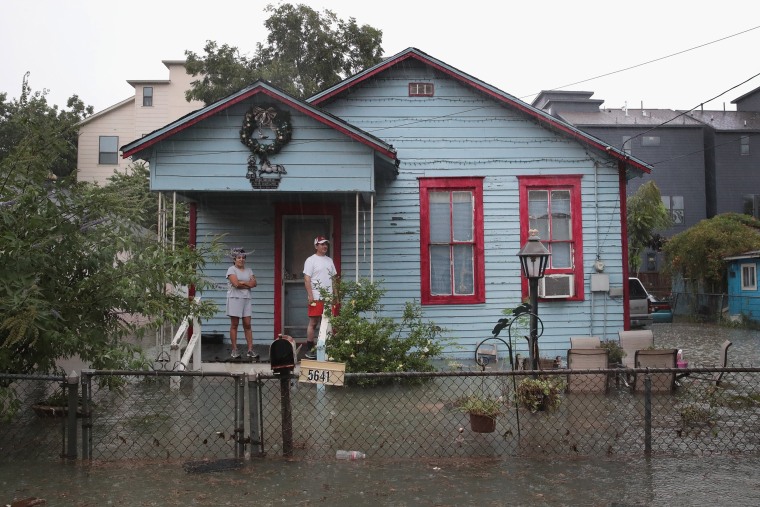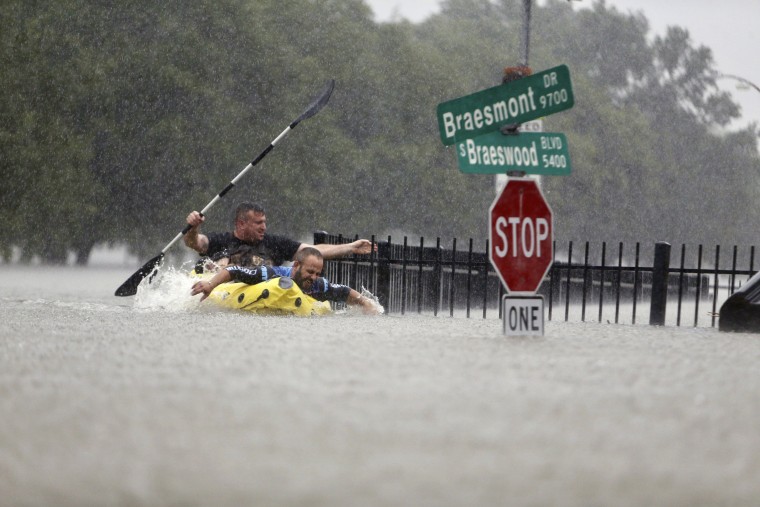HOUSTON — Hurricane Harvey slammed into the Texas coast 175 miles away, but Houston, the nation's fourth-largest city, has never needed a direct strike from a catastrophic storm to flood.
Brock Long, administrator of the Federal Emergency Management Agency, said Sunday on NBC's "Meet the Press" that recovery efforts would take "years."
Houston has been regularly inundated by floodwaters since its settlement in the mid-1800s. An Associated Press analysis of government data found last year that if Harris County — which is home to Houston — were a state, it would have ranked in the top five or six in every category of repeat flood losses.
Nationwide, repeat federal flood relief payouts averaged about $3,000 per square mile. But in greater Houston, the payouts were nearly a whopping $500,000 per square mile.
Here's a look at some of the reasons Houston has been so susceptible to flooding:
Geography
Founded on the banks of the Buffalo Bayou, Houston barely rises above sea level. Making matters worse, its flat terrain and clay soil are susceptible to the flooding of a humid climate that produces extreme rainfall. At least three dozen major floods have been recorded since Houston was founded, including one in April 2016 that killed eight people.
Inadequate infrastructure
Floods prompted the U.S. Army Corps of Engineers to build reservoirs in the western area of Harris County in the 1940s. That addressed some problems, but few notable flood-control efforts have been undertaken since, experts told the AP last year.
In recent decades, Houston has focused on improving drainage and building thousands of detention ponds, which are concrete-lined pools that capture stormwater and pipe it out. But, residents say, some developers have skimped on the flood-prevention systems.

Growth management
In the last quarter-century, greater Houston has added a million people, and its commercial development has cut in half the amount of wetlands per capita that could soak up stormwater runoff.
Paved land generates five times more runoff, and those surfaces in Harris County increased by more than 25 percent during that same time, researchers have said. Houston is also the only major U.S. city without zoning, and critics say local leaders have been pro-developer.
Related: How to Help Hurricane Harvey Victims
Climate shifts
As if Houston's natural elements weren't challenging enough, intense downpours, measuring at least 10 inches, have doubled in frequency during the last three decades. Rising average temperatures have packed 7 percent more moisture into the atmosphere over Houston. Contributing to that is warmer water in the Gulf of Mexico.
